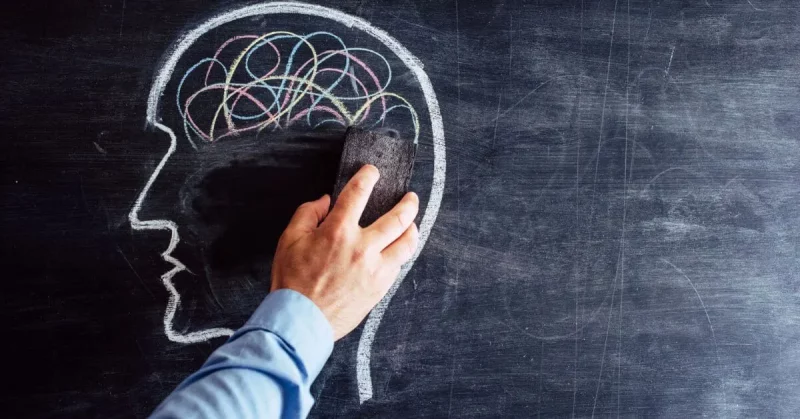Memory problems are one of the most common and frustrating challenges after a traumatic brain injury (TBI). Whether the injury is mild, moderate, or severe, it can interfere with the brain’s ability to store, retain, or recall information. This can affect daily life, relationships, and the overall recovery process.
In this article, we’ll explore how TBI affects memory, what types of memory issues may occur, and most importantly, what you can do to improve them.
Jump to a section
Types of Memory Problems After TBI
Why Memory Problems Happen After Brain Injury
Diagnosing Memory Issues After TBI
Strategies to Improve Memory After TBI
Therapeutic Support and Rehab for Memory Recovery
Supporting Someone With TBI-Related Memory Loss
How TBI Affects Memory
The brain has several areas responsible for different types of memory. The temporal lobe, hippocampus, and frontal lobe are especially important. If these regions are damaged during a TBI, memory function may be disrupted.
Memory issues after TBI can appear in different ways. Some people struggle to remember recent conversations. Others may forget appointments or have difficulty learning new tasks. Some experience gaps in their long-term memory, forgetting events that happened before or shortly after the injury.
These problems can be temporary or persistent, depending on the injury’s severity and the individual’s recovery.
Types of Memory Problems After TBI
Not all types of memory are the same. Understanding the different types can help you better recognize which areas might be affected:
1. Short-Term Memory Loss
Short-term memory holds information for a brief period—usually seconds to minutes. Most people can store 5 to 7 pieces of information in their short-term memory at a time. For example, this could include remembering a phone number long enough to dial it. After TBI, people with short-term memory problems may struggle with:
- Retaining details from a conversation
- Following multi-step instructions
- Remembering why they entered a room
2. Long-Term Memory Loss
Long-term memory involves storing information for days, months, or years. This includes facts, skills, and personal experiences. TBI may cause long-term memory problems, such as:
- Forgetting childhood memories or important life events
- Gaps in memory around the time of the injury
- Trouble retrieving stored knowledge
3. Working Memory Problems
Working memory is the brain’s “scratchpad,” used for holding and manipulating information in real time. This is essential for reasoning, learning, and decision-making. Issues may include:
- Difficulty performing mental math
- Losing track of a conversation
- Trouble juggling multiple thoughts
4. Prospective Memory Deficits
Prospective memory helps you remember to do things in the future, like taking medication or showing up for a meeting. People with TBI might:
- Miss appointments
- Forget deadlines
- Rely heavily on reminders
5. Procedural Memory Changes
This refers to memory for how to do things, like tying your shoes or riding a bike. While procedural memory is often preserved after TBI, it can be affected if the injury is severe or involves areas of the brain associated with motor control.
Why Memory Problems Happen After Brain Injury
The brain is a highly interconnected organ, and memory depends on the smooth operation of many different systems. After a TBI, several factors can contribute to memory impairment:
- Damage to brain structures involved in memory formation
- Swelling or bleeding that disrupts communication between regions
- Fatigue and mental fog that make it harder to concentrate or encode information
- Emotional distress such as anxiety, depression, or stress
- Sleep problems that impair memory consolidation
- Medication side effects that affect cognition
Even a mild concussion can disrupt memory temporarily. In moderate to severe TBIs, structural changes to the brain can lead to more lasting challenges.
Diagnosing Memory Issues After TBI
Memory problems are often identified through observation, self-reporting, and clinical assessment. Neuropsychologists may conduct formal testing to evaluate different aspects of memory and cognition.
These tests can help:
- Determine the severity of memory loss
- Identify which types of memory are affected
- Guide therapy and rehabilitation plans
Caregivers and loved ones may also notice signs before the person with TBI does. If memory lapses start interfering with daily life, it’s important to seek medical evaluation.
Can Memory Improve After TBI?
Yes, memory can improve after brain injury, especially with the right support and rehabilitation. The brain has a natural ability to adapt and rewire itself, a process known as neuroplasticity. While recovery is different for everyone, many people see meaningful progress over time.
Factors that support memory recovery include:
- Early intervention and therapy. Neuroplasticity is enhanced in the first few months following injury, boosting recovery during this timeframe
- Cognitive training exercises. Repetitively practicing targeted memory exercises can promote brain rewiring and recovery.
- Consistent routines and external supports. This creates a predictable environment and reduces the mental load.
- Physical activity and healthy lifestyle habits. Regular exercise and a healthy diet can support memory recovery.
- Emotional and psychological support. This may include therapy or brain injury support groups.
Progress may be slow at times, but small improvements add up. With patience and persistence, many individuals can regain lost skills or find new ways to manage memory demands.
8 Strategies to Improve Memory After TBI
Although memory problems can be frustrating, there are many practical tools and techniques that can help you manage daily challenges more effectively. Generally speaking, it is most helpful to use a wide range of strategies for the best results.
Here are 8 simple strategies you can use to help improve memory after TBI.
1. Use External Memory Aids
External memory aids are tools that help take the pressure off your brain. Instead of trying to remember everything on your own, you can rely on prompts and reminders throughout your day.
- Keep a daily notebook or journal: Write down important events, tasks, or conversations. Review your notes each morning and evening to stay oriented.
- Use smartphone apps: Calendar apps, to-do lists, and reminder alarms are simple but powerful tools. Set recurring reminders for medications, appointments, and bills.
- Try visual cues: Sticky notes on the fridge, door, or bathroom mirror can prompt you to complete specific tasks like taking medication or feeding the dog.
- Label drawers or storage bins: This helps prevent frustration when looking for items and encourages independence.
The more consistent you are with using these tools, the more helpful they’ll become. Over time, they can reduce anxiety and give you a greater sense of control over your routine.
2. Create a Consistent Routine
Establishing predictable habits helps the brain operate more smoothly. A structured day allows your mind to run on “autopilot” for many activities, reducing the number of things you have to actively remember.
- Stick to regular wake and sleep times: A stable sleep schedule improves memory and attention throughout the day.
- Eat meals around the same times: Mealtime routines can provide natural structure to your day and reinforce time awareness.
- Designate specific spots for essentials: Always keep your keys, phone, and wallet in the same place. This simple habit can eliminate common memory hurdles.
A clear daily routine also benefits caregivers by reducing the need for constant reminders or supervision.
3. Break Down Tasks
Trying to juggle too many steps at once can overload your working memory, especially after a brain injury. Breaking tasks into smaller, manageable chunks makes them feel less overwhelming and more achievable.
- Write down instructions step-by-step: Whether it’s making a cup of tea or doing a load of laundry, listing out each action can help you stay focused and avoid mistakes.
- Use visual checklists: A whiteboard in the kitchen or a checklist app on your phone can serve as a visual guide to completing tasks in order.
- Pause between steps: Don’t rush. Take your time to complete one step fully before moving on to the next.
This strategy is especially helpful for household chores, self-care routines, and work-related activities.
4. Repeat and Review
Repetition is a key part of memory. The more frequently you rehearse new information, the more likely it is to stick.
- Say it out loud: Verbal repetition helps reinforce learning and can improve recall. For example, say someone’s name aloud right after you hear it.
- Write it down multiple times: Rewriting key information—like phone numbers or directions—can help transfer it into long-term memory.
- Teach it to someone else: Explaining a concept or task to another person forces you to process and organize the information more deeply.
Repetition is most effective when it’s spaced out over time. Reviewing material a few hours later, the next day, and again after several days can help solidify learning.
5. Focus on One Thing at a Time
Multitasking might seem efficient, but it often leads to more mistakes and memory slips, especially after TBI. Concentrating on a single activity allows your brain to absorb information more effectively.
- Turn off distractions: Silence your phone, close unnecessary browser tabs, and create a quiet environment when possible.
- Set timers for focused work: Try working for 20–30 minutes on one task, then take a short break before switching to something else.
- Be mindful during conversations: Look at the speaker, nod occasionally, and repeat key points to make sure you’re processing what’s being said.
The ability to focus improves with practice. Over time, you may find it easier to stay engaged with what you’re doing.
6. Get Plenty of Sleep
Sleep is essential for brain health and memory consolidation. During sleep, your brain processes the day’s experiences and moves them into long-term storage.
- Aim for 7 to 9 hours of sleep per night: Keep a regular bedtime and wake time, even on weekends.
- Create a calming bedtime routine: Limit screen time before bed, and avoid caffeine or heavy meals late in the evening.
- Address sleep problems: Many people with TBI experience insomnia or disrupted sleep. If this happens regularly, talk to your doctor about treatment options.
Improved sleep can have a noticeable impact on memory, concentration, and mood.
7. Stay Physically Active
Exercise is one of the best ways to support brain function. It increases blood flow to the brain, reduces stress, and promotes the growth of new brain cells especially in areas related to memory and learning.
- Start with gentle movement: Walking, stretching, or low-impact workouts can be a great starting point.
- Try brain-boosting activities: Dancing, yoga, and tai chi combine movement with coordination and attention, giving your brain and body a workout at the same time.
- Make it a daily habit: Aim for at least 20–30 minutes of physical activity most days of the week.
Even small amounts of movement throughout the day can improve cognitive clarity and reduce brain fog.
8. Practice Mindfulness and Relaxation
Stress, anxiety, and mental fatigue can make it harder to remember things. Practicing mindfulness or relaxation techniques helps calm the nervous system and improves your ability to focus and retain information.
- Try deep breathing: Inhale slowly through your nose, hold for a few seconds, then exhale gently through your mouth. Repeat several times.
- Use guided meditation apps: Short sessions (5–10 minutes) can help ground your thoughts and bring your attention back to the present.
- Practice gratitude or journaling: Reflecting on your day helps reinforce memories and encourages a positive mindset.
Over time, mindfulness can also reduce emotional reactivity, helping you stay grounded during stressful moments.
Therapeutic Support and Rehab for Memory Recovery
In addition to self-help strategies, rehabilitation professionals can offer structured support. Below are several common options for therapy and rehab that support memory after a brain injury.
1. Cognitive Rehabilitation Therapy (CRT)
CRT is often provided by occupational or speech-language therapists. It involves exercises and strategies to rebuild memory, attention, and executive function. Sessions are tailored to the individual’s needs and may focus on:
- Memory drills and games
- Learning new routines
- Using external tools effectively
2. Speech and Language Therapy
Speech therapists can address language-based memory challenges, such as word-finding problems or difficulties following conversations. For home or portable options, there are many helpful apps to support you after brain injury, like the CT cognitive and speech therapy app.
These options will help with memory as well as cognitive-communication skills!
3. Neuropsychological Counseling
Some memory issues are tied to emotional health. Neuropsychologists help patients understand the cognitive effects of TBI and teach coping strategies.
4. Group Therapy or Support Groups
Talking with others who have experienced TBI can provide insight, encouragement, and practical tips. It also reduces feelings of isolation.
Supporting Someone With TBI-Related Memory Loss
If you’re caring for someone with memory problems after a brain injury, your support can make a big difference. Here are a few ways to help:
- Be patient and avoid correcting them harshly
- Use gentle reminders and cues
- Encourage use of memory aids and routines
- Celebrate progress, no matter how small
- Attend therapy sessions when possible
- Educate yourself about TBI and memory
Your understanding and encouragement can help build confidence and reduce frustration.
Final Thoughts
Memory problems after TBI are common, but they are not hopeless. With time, therapy, and the right strategies, many people regain function or learn new ways to manage memory challenges.
Good luck and remember, whether you’re living with a brain injury or supporting someone who is, recovery is possible!









